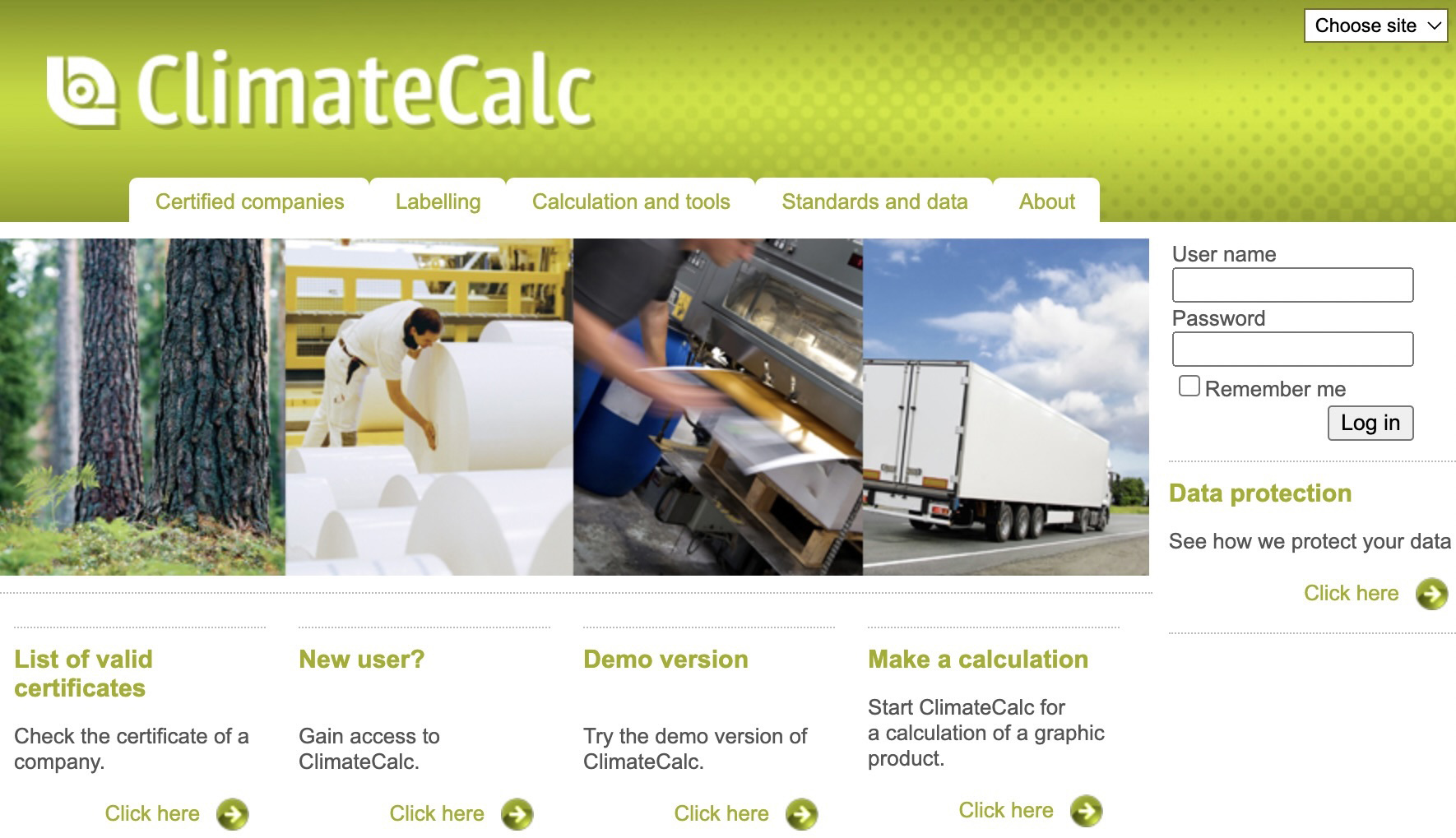If you want to offer your customers a carbon footprint for each job you do for them, you can, with a software tool that’s been around for some time but that has gone largely unnoticed.
If you’ve not heard of ClimateCalc you’re not alone. It’s an online carbon footprinting tool that’s for the whole of the graphics industry, covers 95% of all measurable emissions and doesn’t cost the earth. The BPIF jointly developed the software with its European sister print federations a number of years ago but take-up in the UK has been slow, though there are now 22 UK sites using it. Should your business be another?
Based on the recommendations from Intergraf, the European umbrella body for graphic associations, ClimateCalc covers 13 crucial parameters and allows a graphics company to offer its customers a carbon footprint for each job.
The tool complies with ISO14064-1 and comes in two forms - the ‘basic’ model, which is simple to use, and the ‘full’ model, which requires more input but gives a more company specific measurement. Both models allow a PSP to input the emissions factors for the substrates they actually use, rather than generic factors.
Taking its emissions factors from the Ecoinvent website and university research, the ClimateCalc software covers areas such as inks, varnishes and IPA, uncommon in many other calculators.
In the basic form, a PSP simply has to input the number of employees it has, its annual consumption of energy, the annual amount of substrate purchased and sent to waste and the tool will give it a site carbon footprint split between Scopes 1,2 and 3. It will also allow a PSP to offer its customers a carbon footprint for each job by inputting the weight of substrate used on the job and the distance the job has to travel to the customer.
The full model allows for far more bespoke data inclusion, with a PSP able to add the raw materials used, such as inks and varnishes, as well as packing material and transportation, including employee commuting.
ClimateCalc has been designed for PSPs to start with the basic model and then move onto the full model once they get confident with the data collection exercise. It requires a site to choose a base year - either their last financial year or a recent 12-month period - and then start inputting consumption data for that period.
The data collection exercise in the full model, allows a site to input substrate of varying emissions factors that are specific to its products as well as the print raw material used and the specific details of employee commuting and product transportation. However, if a site only has some of that data the tool reverts to worse case data, so it doesn’t need to provide all the data if it doesn’t have it.
Once the data has been input then the BPIF conducts a desk-based audit of the figures by comparing the input figures with bills and other supplier data. Once the figures agree the site is certified and can start to use the product calculator to give its clients a carbon footprint for every job.
Measuring is only the first step however in a PSP’s environmental journey - increasingly more customers are asking questions about targets for reducing emissions and whether their print suppliers intend to go net zero or carbon neutral. Both of these require a robust measuring tool and with ClimateCalc users can be secure in the knowledge that it is compliant with ISO14064-1 as required by PAS 2060 on carbon neutrality and has been verified by SGS to cover 95% of measurable emissions. On top of that it’s been checked by a third party so no-one can be accused of marking their own homework.
ClimateCalc is also transparent - it publishes a list of the 13 parameters covered and explains why it doesn’t cover other items such as capital equipment and end of life emissions, thus avoiding any accusations of greenwash.
The cost of the scheme to a PSP depends on the number of its employees and whether the site takes the full or basic model. For sites under ten employees the annual cost including audit for a member company is £450 for the basic model and £900 for the full version.


